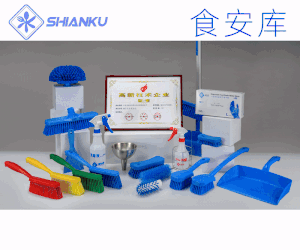Washington-based advocacy group Cornucopia Institute this week re-filed a legal complaint with the US Department of Agriculture (USDA) calling for the removal of the ingredients from organic infant formula.
The group, which typically focuses on organics, family farming and food policy, claims the widely used omega-3 ingredients should be banned from US organic products because they are hexane-extracted. It also maintains that the fatty acids have no scientifically proven benefits for infants, and may even produce unwanted side-effects such as vomiting and diarrhea.
However, Professor Michael Crawford, director of the Institute of Brain Chemistry and Human Nutrition at London Metropolitan University has said Cornucopia’s claims are “without any scientific substance”.
“There is absolutely no question about the requirement of the brain for DHA (docosahexaenoic acid) and ARA (arachidonic acid). The data is robust,” he told NutraIngredients-USA.com.
Cornucopia first filed its complaint with USDA in 2008, alleging violations of National Organic Program (NOP) regulatory standards by infant formula manufacturers using Market’s ingredients. DHA and/or ARA produced by Martek Biosciences Corporation are currently found in over 99 percent of infant formulas sold in the US and in nearly 50 percent of infant formulas sold in other parts of the world.
Martek has re-iterated that it stands by the safety, efficacy and scientific backing of its ingredients.
Organic standards
Martek’s DHA and ARA are derived from algae and fungus, and are extracted using the solvent hexane. Cornucopia’s objection is that the petroleum-based solvent is banned in organic production under USDA National Organic Program (NOP) rules.
“DHA and ARA are synthetic ingredients that are not on the National List of Approved and Prohibited Substances (205.605). They are neither vitamins nor minerals, which do appear on 205.605,” stated Cornucopia in its complaint to NOP.
AMS rule 205.605 lists nutrient vitamins and minerals as permitted non-agricultural (non-organic) substances allowed as ingredients in or on processed products labeled as ‘organic’ or ‘made with organic’ in specified ingredients or food groups.
Martek says that fatty acids such as omega-3 and omega-6 are considered non-agricultural, accessory nutrients.
“In 2006, AMS (the USDA's Agriculture Marketing Service) evaluated whether Martek’s DHA and ARA could be added to infant formulas and other organic products and concluded it would be appropriate to do so because DHA and ARA are treated as ‘nutrient vitamins and minerals’,” the firm told NutraIngredients-USA.com.
CONFERENCE
Attend the #1 Virtual Conference and Expo for Drinks Ingredients!
Join DrinksIngredients2010 online to get advice from industry experts, find reliable suppliers for your ingredients and gather valuable tips from other drinks formulators. DrinksIngredient2010, the virtual conference and expo for beverage developers! Free registration starts here... Click here
USDA did not respond to calls for comment from NutraIngredients-USA.com.
DHA/ARA science
Cornucopia also took issue with the science supporting the benefits of DHA and ARA for infant health.
“The vast majority of peer‐ eviewed, published scientific studies on this topic have concluded that the addition of DHA and ARA to infant formula confers no benefits to infant development. These additives are neither required in formula by FDA regulations, nor are they recommended by respected independent professional associations such as the American Academy of Pediatrics,” states the complaint.
The group highlighted two meta-analyses that had reviewed the results of 18 clinical trials, and concluded there are no proven benefits to DHA/ARA supplementation in infant formula.
However, Professor Crawford, who is recognized internationally as an authority on omega-3, pointed out that reviews often do not take into account the fact that individual studies are conducted using different dosages and forms of the ingredients. The science backing the benefits of the fatty acids is “robust”, he said.
DHA/ARA recommendations
This is also reflected in international recommendations for the consumption of omega-3.
As early as 1978, the FAO-WHO published a Joint International Expert Consultation on the Role of Dietary Fats and Oils in Human Nutrition. In it they commended that infant formula should follow the composition of human milk with respect to its content of long chain poly unsaturated fatty acids (DHA and ARA).
Last year, the American Dietetic Association highlighted the importance of DHA and ARA to infant health. The National Institutes of Health also recognizes that DHA and ARA may help increase infants’ cognitive skills. In 2002, the National Academy of Sciences (NAS) developed recommendations for advisable intakes of longer-chain omega-3s for infants. In 2008, the International Society for the Study of Fats and Lipids (ISSFAL) issued a Policy Statement recommending at least 200mg of DHA per day during pregnancy and nursing. Codex (Stan 72-1981, revised 2007) also confirms the safety of DHA and ARA and permits them for use in infant formulas.
In Europe, the Superior Health Council (SHC) of Belgium recently recommended 45-175 mg DHA/day and 45-110 mg ARA/day for children 12-36 months of age. Most recently, the European Food Safety Authority (EFSA) issued a positive opinion on DHA and the visual development of infants, recommending a minimum intake level of 100 mg DHA/day for infants and children ages 7-24 months.
Market approval
In the US, the Food and Drug Administration authorized supplementation of infant formula with DHA and ARA in 2001. In 2003, the GRAS (generally recognized as safe) status was extended to DHA for use as a general food ingredient.
Infant formulas with DHA and ARA have been on the market internationally since 1994 and in the US since 2002. Martek’s ingredients have been used in organic infant formulas since 2006.











 地區(qū):
地區(qū):






 魯公網(wǎng)安備 37060202000128號
魯公網(wǎng)安備 37060202000128號



